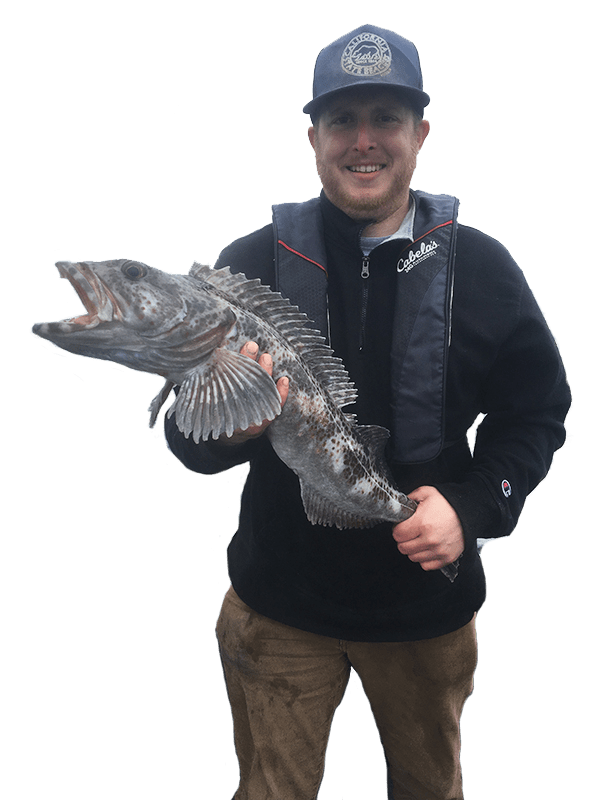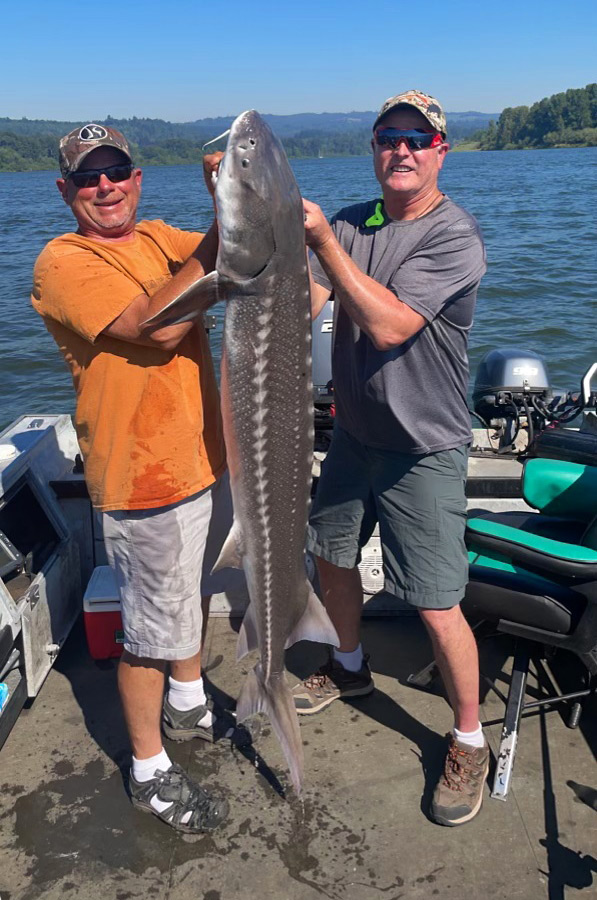Best Techniques to Catch Giant White Sturgeon on the Columbia River
The white sturgeon is one of the largest and strongest freshwater fish in North America, with the Columbia River having the highest population of this species worldwide. As you can imagine, it’s one of the most popular species in the world!
This species is a prehistoric fish that can live for over 200 years! If you’re planning to attempt catching one of these giants in the Columbia River, you have to be extra prepared. Take a look at these best techniques to catch giant white sturgeon on the Columbia River!
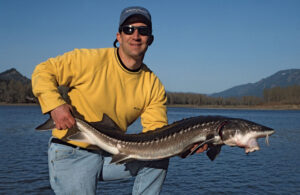
How to Catch Giant White Sturgeon on the Columbia River
The Columbia River is broken into different sections, which can help anglers target certain fish species better in hopes to help find them, and in this case, it’s sturgeon.
You can find sturgeon in decent numbers along the river from Bonneville Dam through Portland and Vancouver, along with the estuaries around Astoria. When the river nears the Pacific Ocean, the more expansive it becomes. Sturgeon will head to this area for access not only to the wide estuaries but to the others throughout the coastal region. That’s all thanks to the different food available to them, including clams, crabs, sand shrimp, and fish.
Here are more helpful things to know as you attempt to catch giant white sturgeon on the Columbia River:
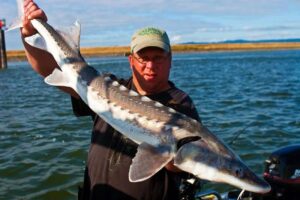
When to Go
The Columbia River estuary would hold sturgeon year-round. The most popular time to head to the estuary is during late spring to early summer, when the population is particularly high.
Note that this time frame is when fisheries in Oregon and Washington would be open on specific days to limited harvests of this fish, and when allowed to keep, they must be within a specific size range.
Sturgeon fishing may slow a bit during the mid-to-late summer when the Columbia River is warm. The bite will return when the waters begin to cool come fall. If you’re really keen and want to catch giant white sturgeon on the Columbia River, try fishing during winter!
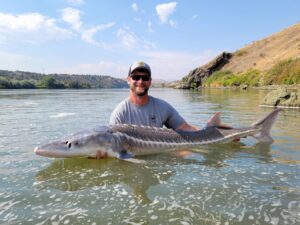
Where to Go
Besides what was mentioned above (Portland-Vancouver area), make sure you head to deeper waters with a good current. There are also other places you can head to, including:
- Kelley Point Park, Portland
- Near pilings at the mouth of the Willamette River
- Above Portland, particularly in the Columbia River Gorge below Bonneville Dam. They are known to have oversized sturgeon. Note that these fish are strictly caught and released.
- Below Bonneville Dam holes largest sturgeon but you must read the regulations carefully as the area also holds closure areas to protect key spawning areas.
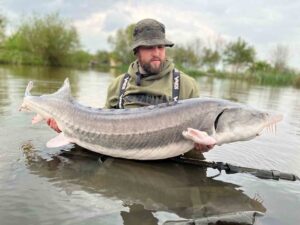
Rules and Regulations
Even if the sturgeon is a catch-and-release fish, they require a special permit, which is why it’s important to check the local regulations before you head to the river to fish. Many reservoirs upriver would have some harvest allowed on annual quotas, which are set at specific times of the year.
Sometimes, they open at the start of the year, and the fisheries close once the quotas are reached. The closures happen quicker with harvests becoming restricted in the lower river.
Lake Roosevelt is a growing sturgeon fishery in the Columbia River. It’s the uppermost reservoir located in northern Washington, stretching for about 150 miles.
Best Techniques to Catch Giant White Sturgeon on the Columbia River
When learning the technique to catch giant white sturgeon on the Columbia River, it’s important to know the fish’s behavior. Sturgeon would feed almost entirely on slow-moving and freshly-killed prey. They don’t find interest in chasing lures, only rarely grabbing lured fishes with bait and scent.
A common way to catch giant white sturgeon on the Columbia River is to rig up bait and cast out. Afterward, place the fishing rod in a holder, setting the reel to a free spool with the clicker set.
There will be times when the sturgeon would snatch up bait and then immediately take off. If you don’t set the reel to free spooling, say goodbye to your entire setup, from bait to rod!
As you wait, closely watch your rod tip as the bite is usually extremely light. That’s because sturgeon would be similar to a vacuum, sucking up the bait to chew and spit out if they don’t like it. The challenging part is how they will hold still the entire time, so you must be wary.
The rod tip will bounce a bit so if you sense a light bite, pick it up right away. When you feel a harder tug, set your hook as hard as possible and set it again. Sturgeon have thick rubbery mouths that won’t penetrate with a hook that easily, so set the hook hard and set it multiple times to avoid losing the sturgeon. Also, we recommend using sharp hooks and replacing your current hooks if they are dull.
Alright, so what happens once you hook a sturgeon and it’s now taking line?
Hold your rod tight and keep your line taught, never allow it to go slack as the fish can throw the hook or injure them. Set your drag as tight as possible and use the rod and drag to wear the sturgeon out as it tries making pulls and runs. Once the sturgeon is tired, prepare to bring it to the net, snap some photos, and release them to the waters again! Congratulations!
Wrapping It Up
When in the Columbia River, keep your eyes and senses peeled for a glimpse of the white sturgeon. You never know, it may be your lucky day and you can catch one with the help of the crew from your charter!
If you’re trying to catch giant white sturgeon on the Columbia River, make sure to prepare ahead and keep these techniques in mind. Also, why not consider joining a fishing charter to heighten your chances of success? Contact us now for more details!
Schedule your Oregon Fishing Charter Today!
